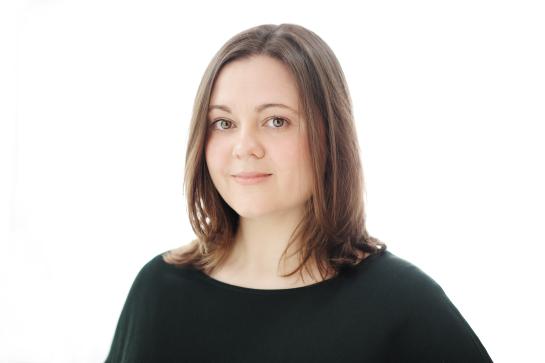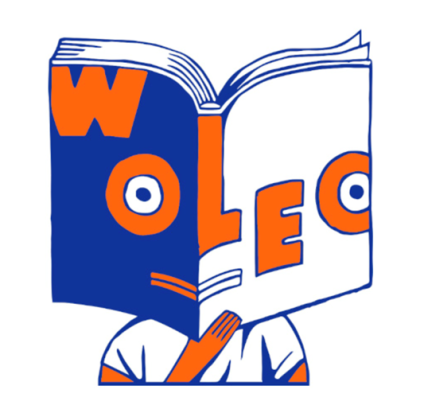
CLIC nodigt jullie graag uit voor de eerstvolgende WOLEC-sessie die plaatsvindt op dinsdag 23 september van 12:00 tot ten laatste 13:30 in 5C.03. Spreker Anna-Lena Eick (Johannes Gutenberg University Mainz) zal een lezing geven met als titel: "Dimensions of the (Post-)Digital in the Narrative Construction of Identity in Contemporary Anglophone, French, and German Novels".
Anna-Lena Eick is postdoctoraal onderzoeker bij het Department of General and Comparative Literature at Gutenberg Institute for World Literature and Written Media aan de Johannes Gutenberg University Mainz (https://www.avl.uni-mainz.de/). Ze heeft een PhD in Vergelijkende Literatuur-en Cultuur Studies (Comparative Literary and Cultural Studies) van de Justus Leibig University Giessen in Duitsland. Haar doctoraatsonderzoek gaat in op de co-evolutie van visuele media (zoals fotografie en vroege film) en de kritische heroriëntatie van postmoderne historische romans vanaf de jaren 1960 en later. Een herziene versie, Geschichte zerfällt in Bilder, nicht in Geschichten - Visualität in der literarischen Geschichtsdarstellung, werd gepubliceerd in 2024 door Brill in de Inter/Media reeks. Haar huidige project onderzoekt de intersecties van het (post-)digitale medialandschap en kwesties van er bij horen (i.e. belonging) en identiteit. Verdere onderzoeksinteresses zijn narratologie, inter-en transmedialiteit, alsook transculturele studies, ballingschap en migratie studies.
De voertaal is het Engels. Een broodjeslunch wordt voorzien. We vragen u om uw aanwezigheid ten laatste tegen 16 september via deze link te bevestigen. Voor meer informatie over WOLEC, klik hier.
Tot dan!
*****
CLIC is excited to invite you to the next WOLEC session, taking place on Monday 23 September from 12:00 till 13:30 in room 5C.03. Anna-Lena Eick (Johannes Gutenberg University Mainz) will give a lecture titled: "Dimensions of the (Post-)Digital in the Narrative Construction of Identity in Contemporary Anglophone, French, and German Novels".
Anna-Lena Eick is a postdoctoral researcher at the Department of General and Comparative Literature at Gutenberg Institute for World Literature and Written Media at the Johannes Gutenberg University Mainz (https://www.avl.uni-mainz.de/). She holds a PhD in Comparative Literary and Cultural Studies from Justus Liebig University Giessen, Germany. Her doctoral thesis engages with the co-evolution of visual media (such as photography and early film) and the critical re-orientation of postmodern historical novels from the 1960s onwards. A revised version, Geschichte zerfällt in Bilder, nicht in Geschichten - Visualität in der literarischen Geschichtsdarstellung, was published in 2024 with Brill in the Inter/Media series. Her current project examines the intersections of the (post-)digital mediascape and issues of belonging and identity. Further research interests include narratology, inter-and transmediality studies, as well as transcultural, exile and migration studies.
The lecture will be held in English. A sandwich lunch will be provided. We ask you to confirm your presence via this link by 16 September. For more information about WOLEC, click here.
We hope to see you there!

Abstract
Digital media have become ubiquitous in contemporary life, shaping not only communication and culture but also narrative forms. The concept of the “post-digital” (e.g., Ludovico 2014; Cramer 2015; Lindberg 2025) captures the normalization and profound integration of digital technologies into our lives, emphasizing our adaptation to digital mediality. This transformed mediascape has consequences that reach far beyond the technological—it is also significantly reshaping modes of identity formation and potentially pluralistic perceptions of the self (e.g., Granic et al. 2020; Talaifar & Lowery 2023).
As a consequence, literary engagements with the digital transformation of culture and society are often closely connected to discourses of personal and collective identity (e.g. Kreuzmair & Schuhmacher 2021; Khosravinik 2022). Yet, narrative research has thus far failed to engage in depth with this interconnection, which manifests not only in so-called “literature born digital” (cf. Pressman 2014: 2), but also in analog texts. In analog texts, too, digital media no longer merely serve as a narrative backdrop; rather, they have become thematically, structurally, and formally relevant, influencing the forms and functions of literary texts through intermedial references, the remediation of digital forms and formats, and the incorporation of post-/digital aesthetics.
My research investigates how contemporary analog fiction (from 2015 onwards, and across different cultural contexts) reflects the postdigital mediascape, particularly in relation to questions of identity construction, but also in terms of identity conflicts, including intersectional, post-migration, and gender perspectives. It asks how the postdigital condition can foster new understandings of (the plurality of) identity, positioning literature as a crucial space for societal and cultural negotiation in the midst of media and social transformation.
In my talk, I will map this emerging field of research by focusing on some selected German, English, and French novels. I will showcase the way references to digital media and the postdigital mediascape are shaping literary constructions of identity in the wake of these transversal complexities, and thereby opening up new dimensions of meaning (e.g., by altering the spatio-temporal structures of the main narrative discourse through the incorporation of digital communication elements). To illustrate the specific surplus of meaning addressed here, I will draw on examples from texts by Mithu Sanyal, Olivia Sudjic, Senthuran Varatharajah, Patricia Lockwood, and Nathan Devers.
